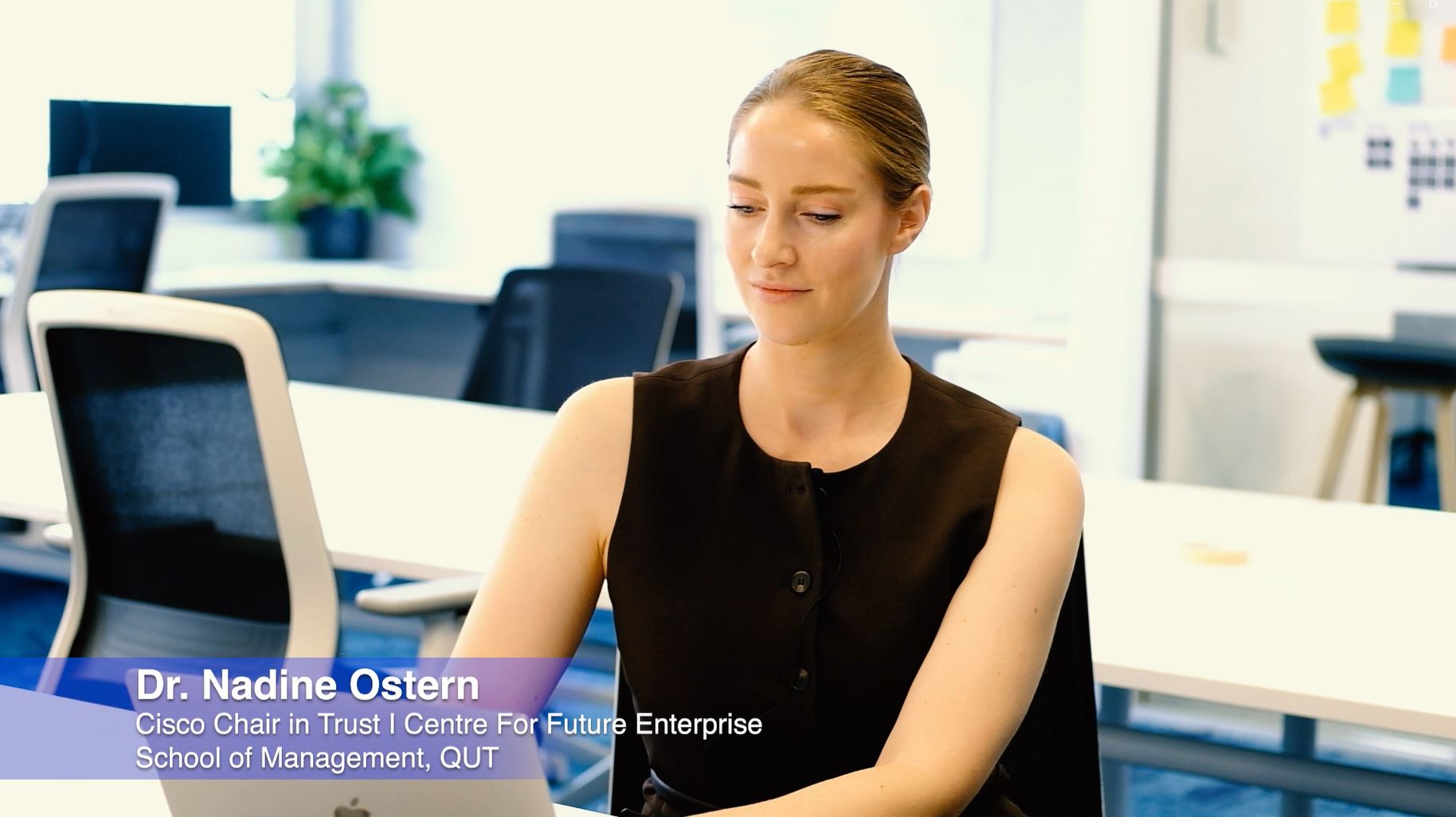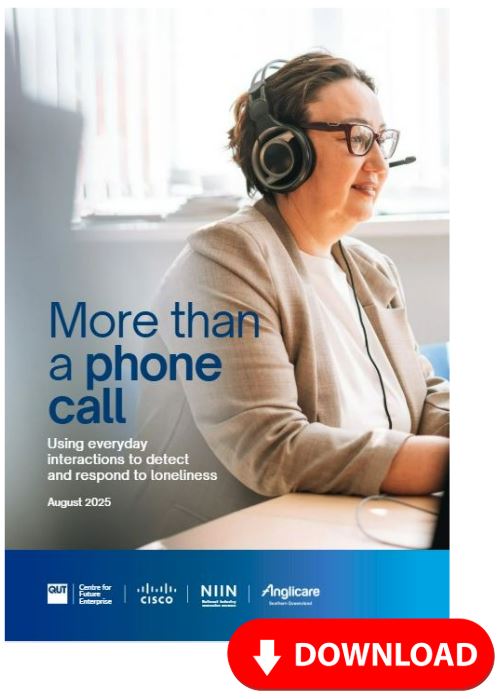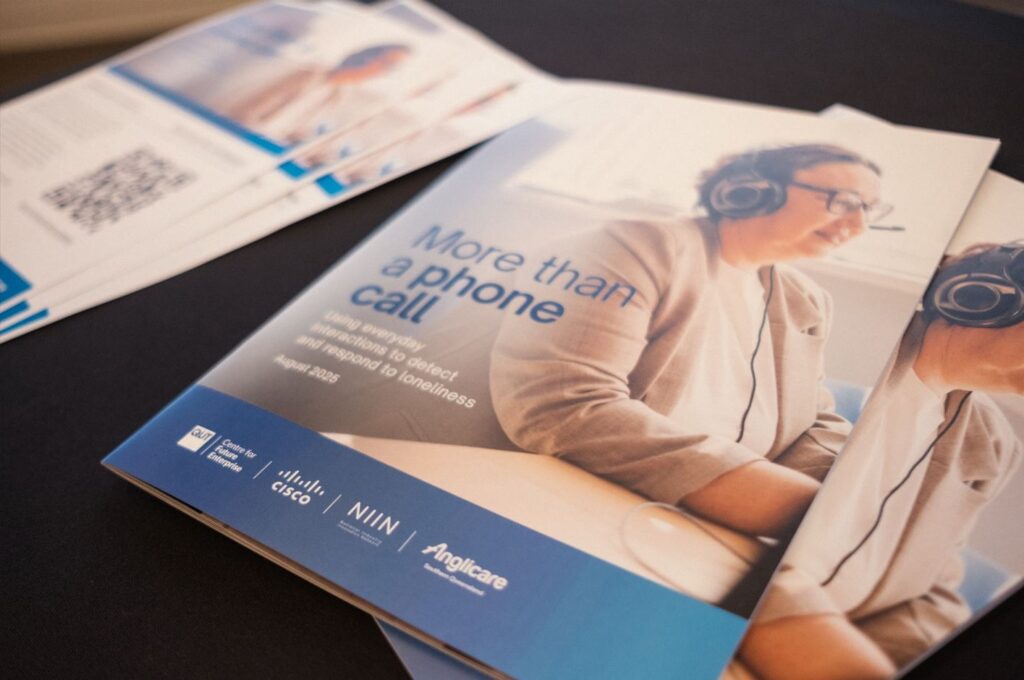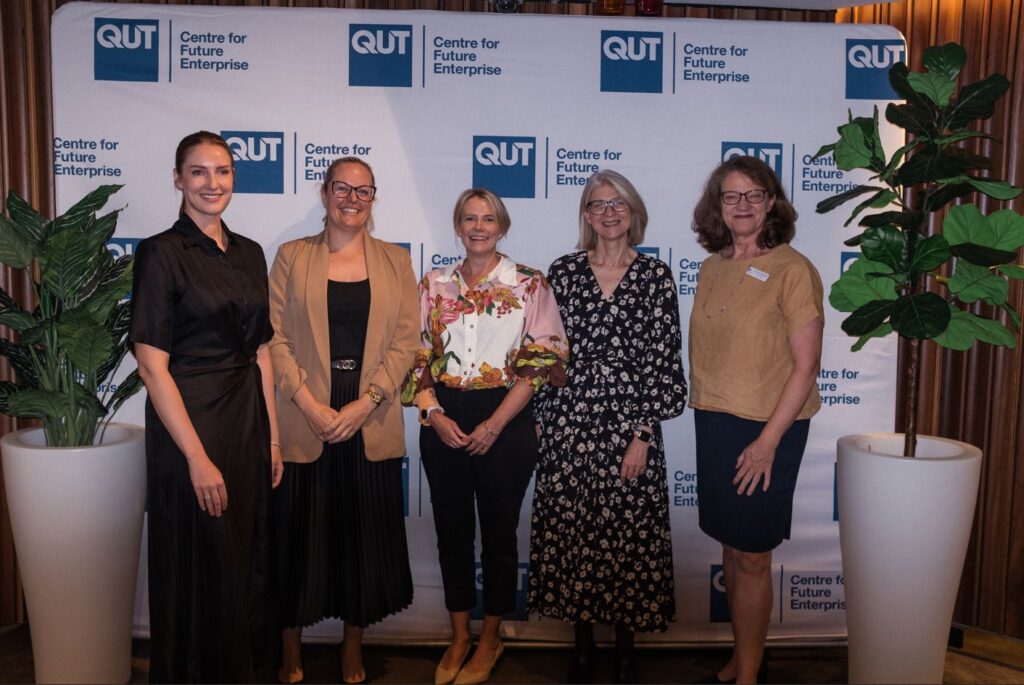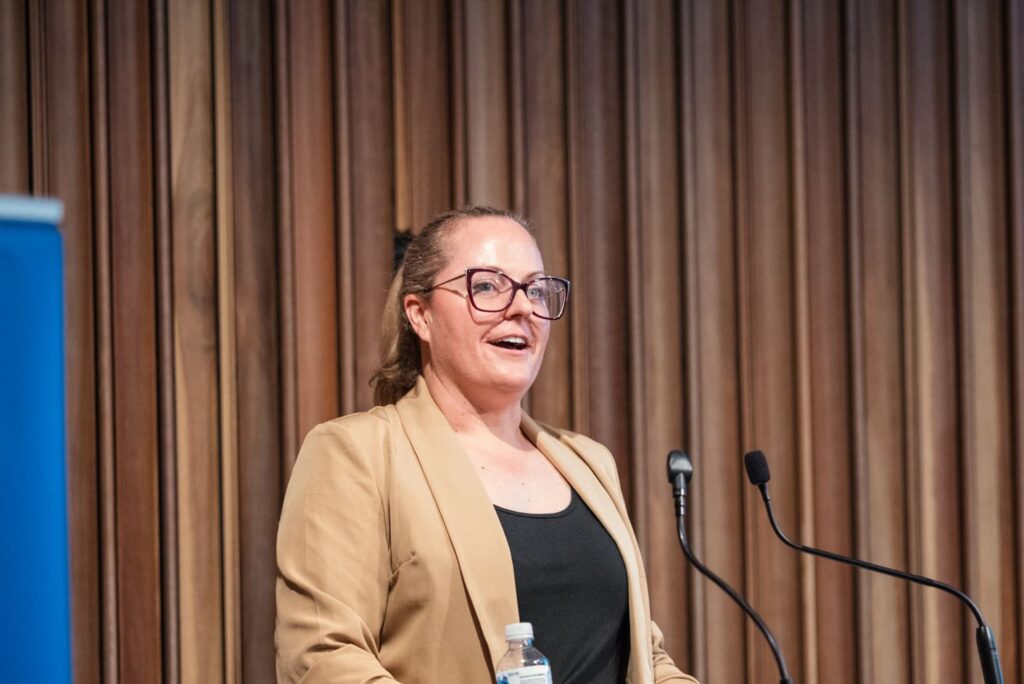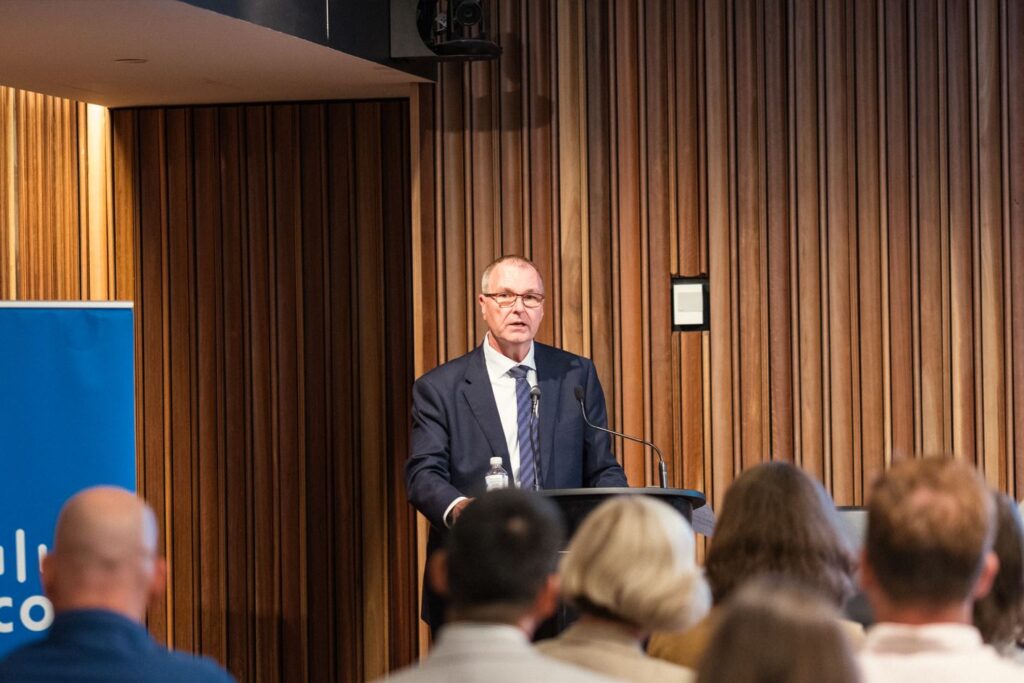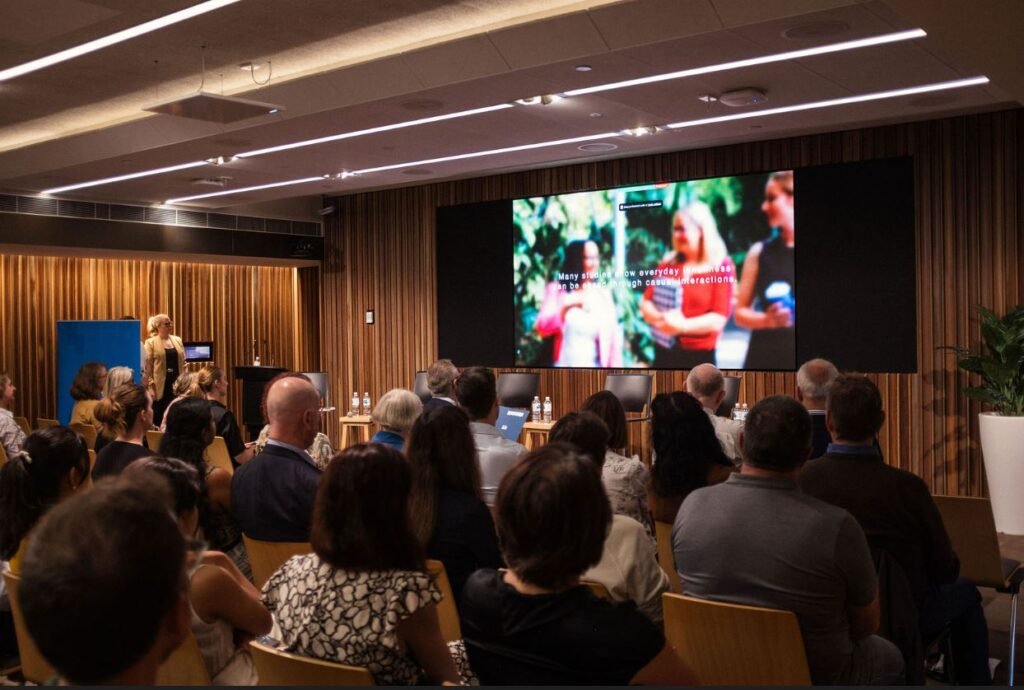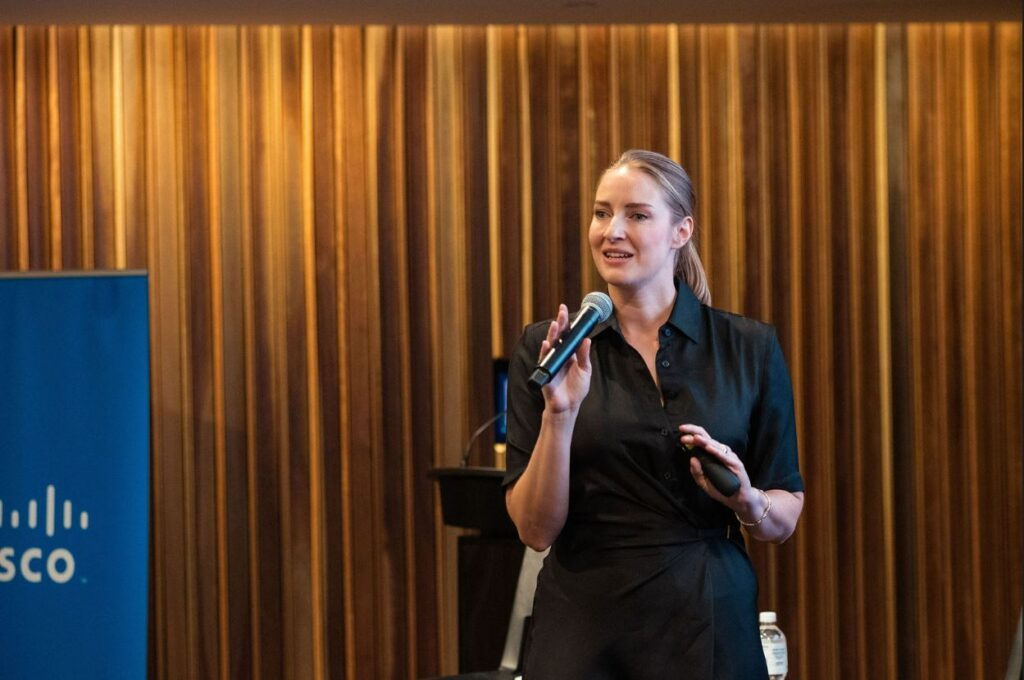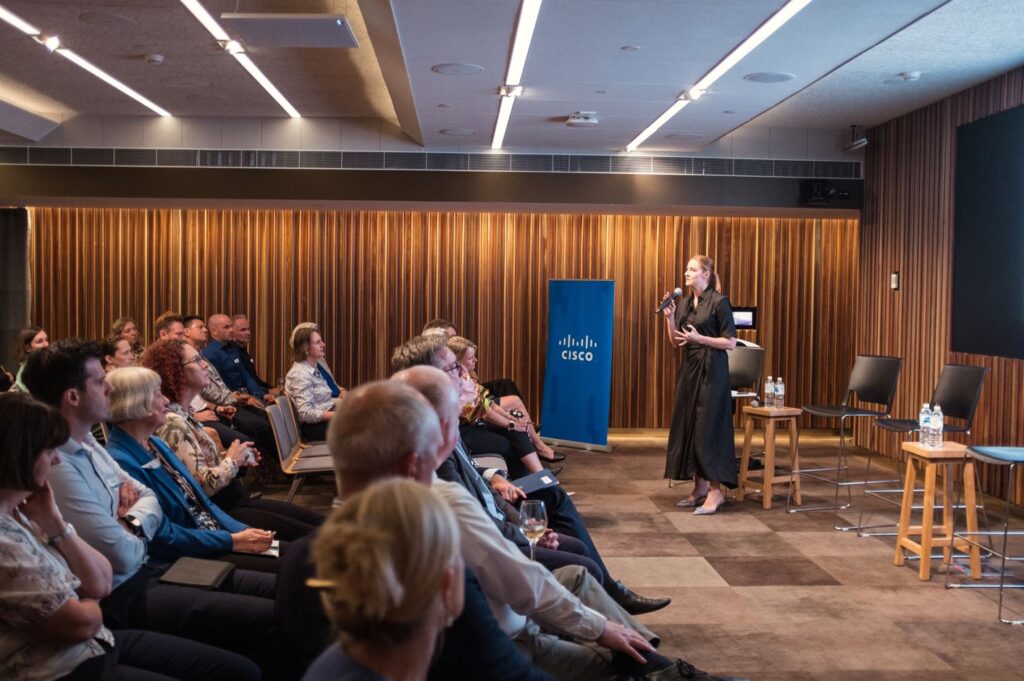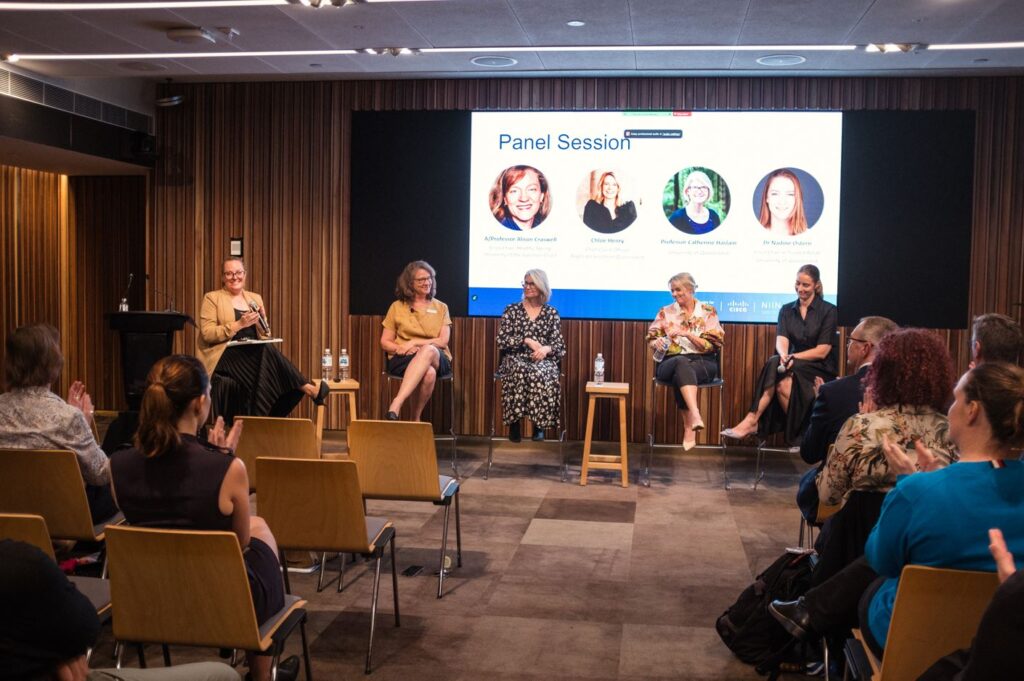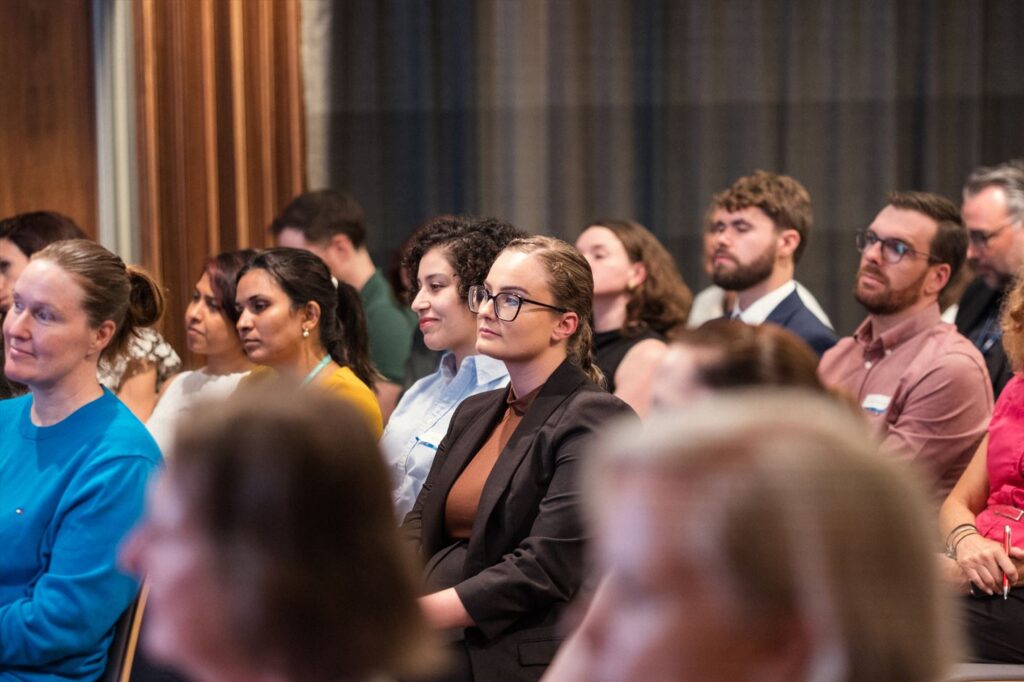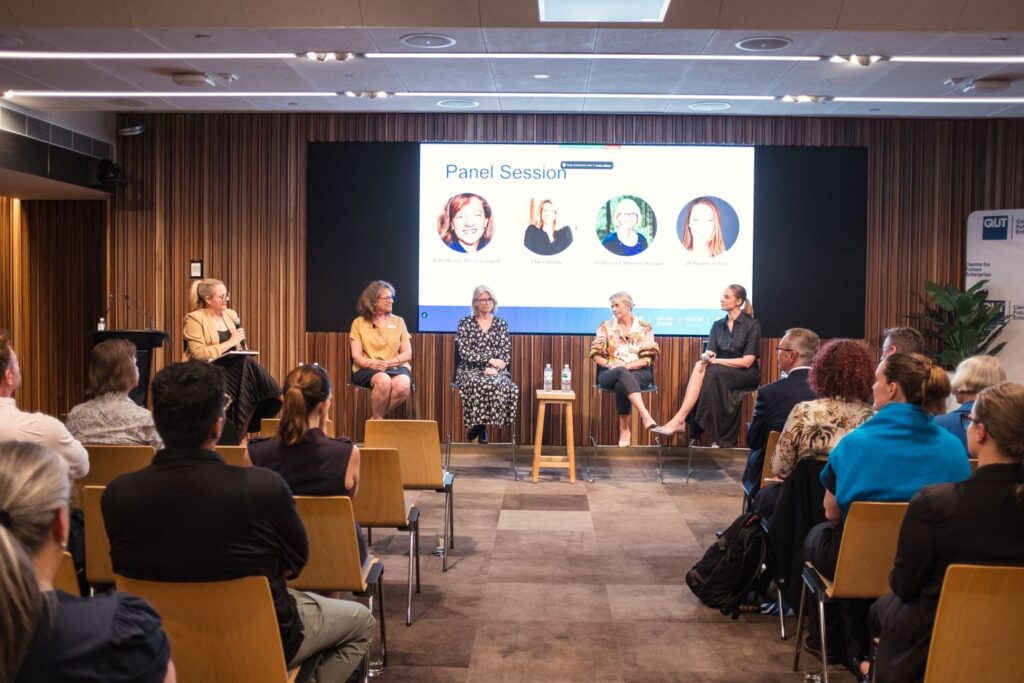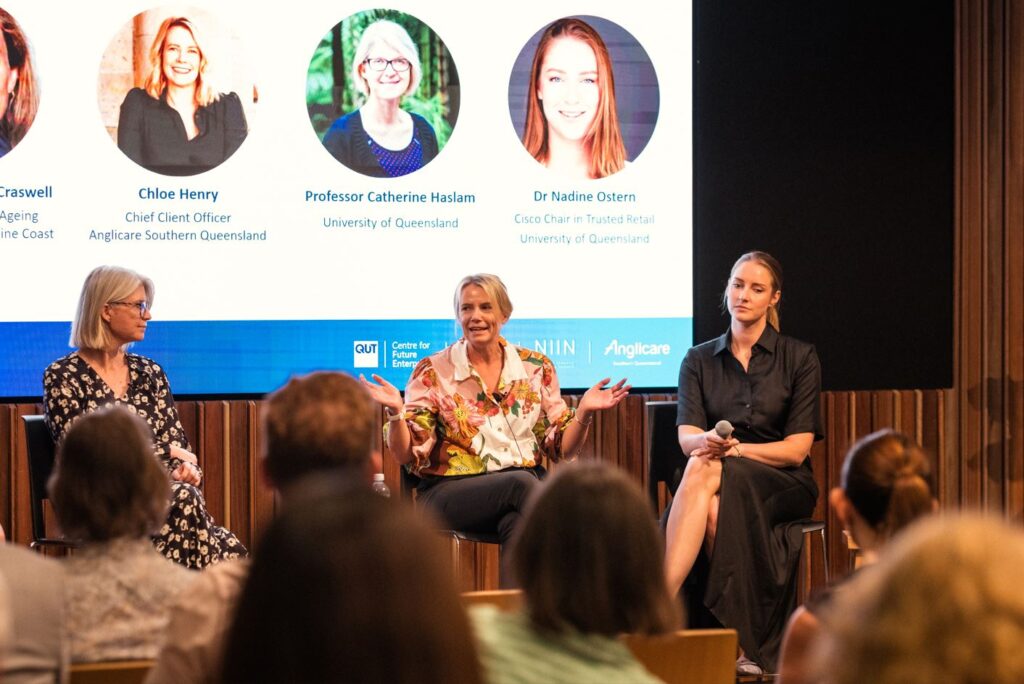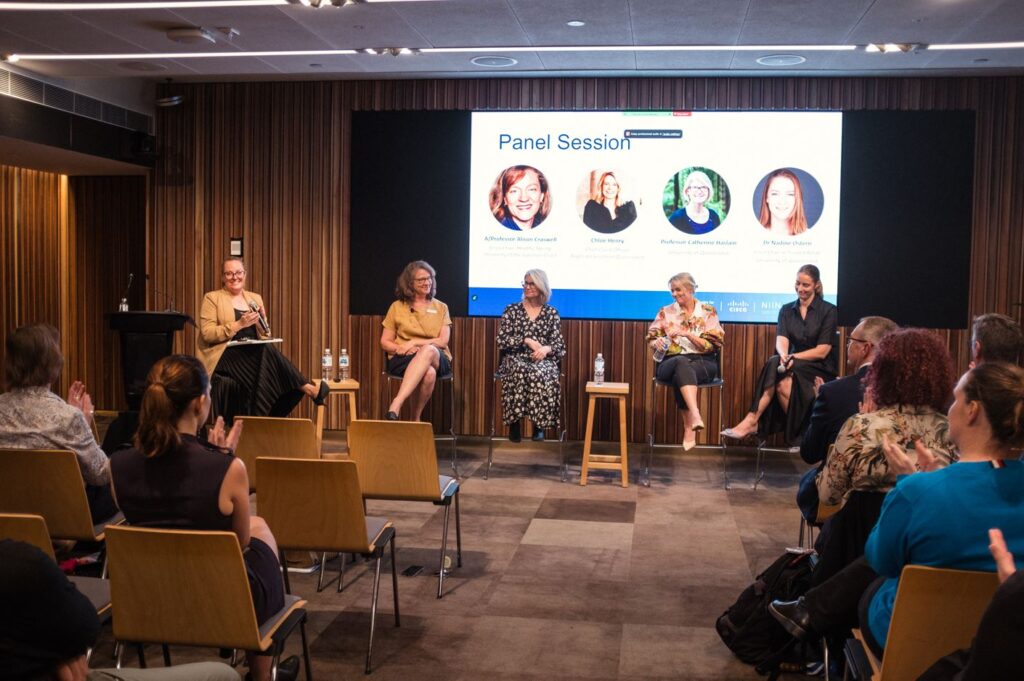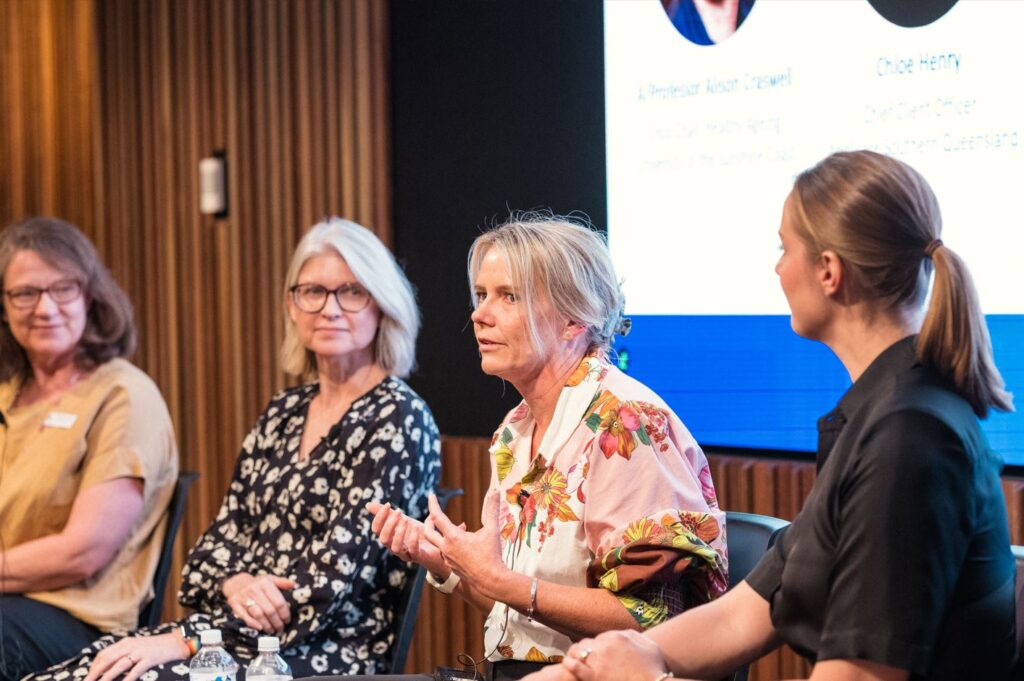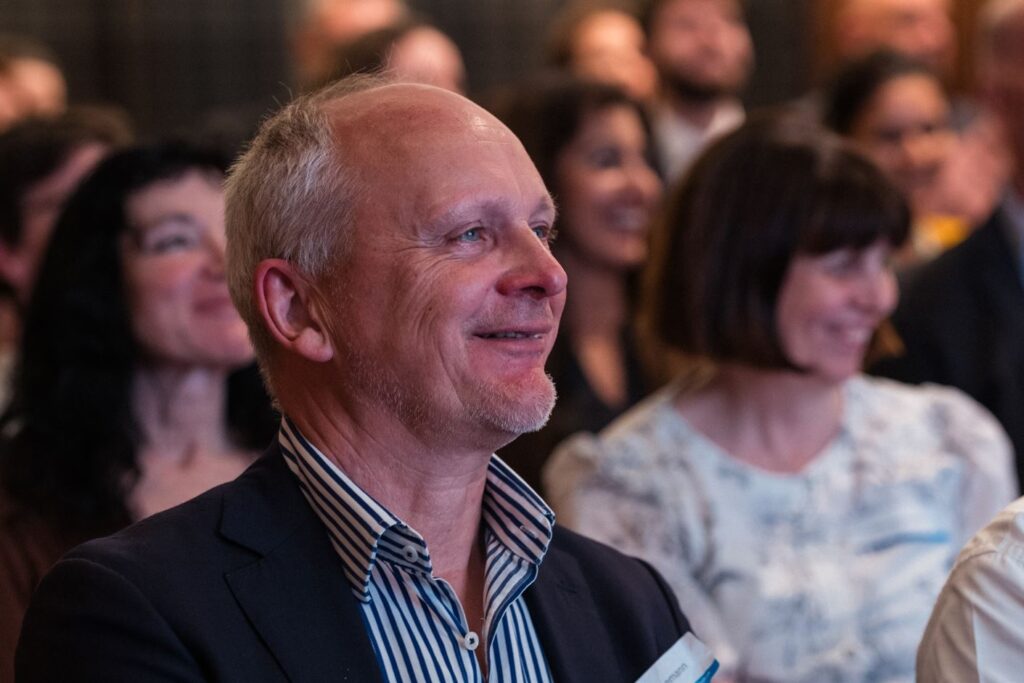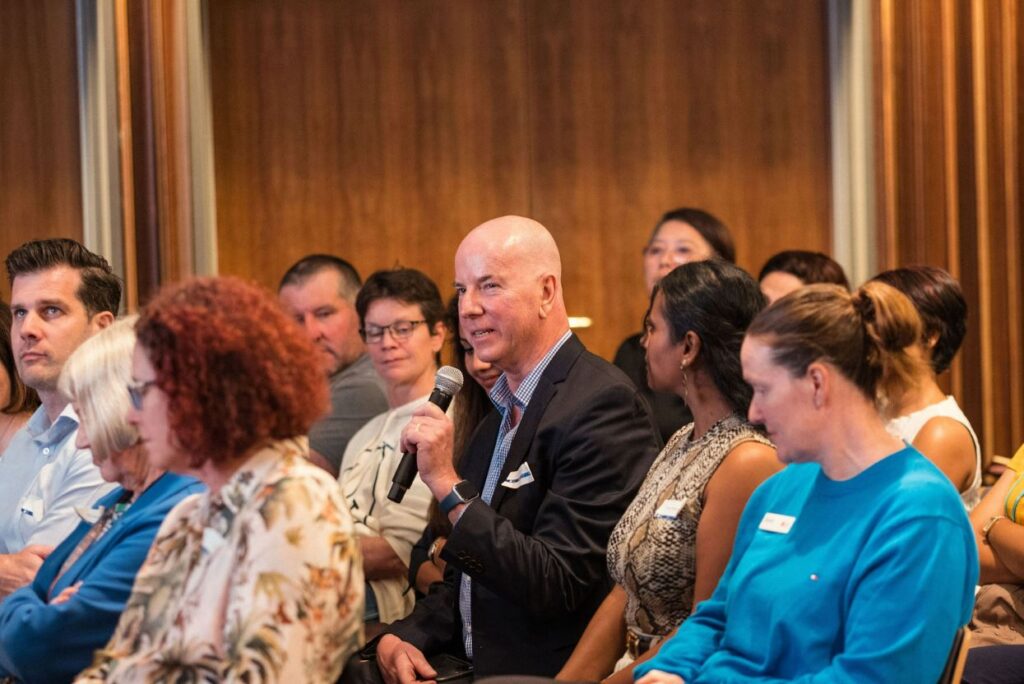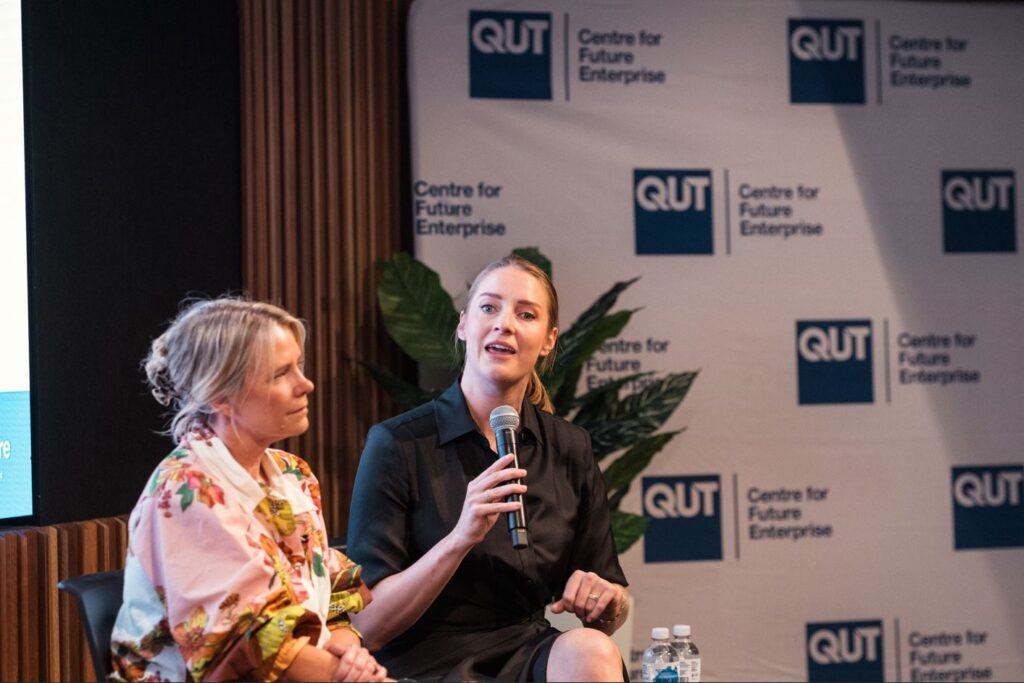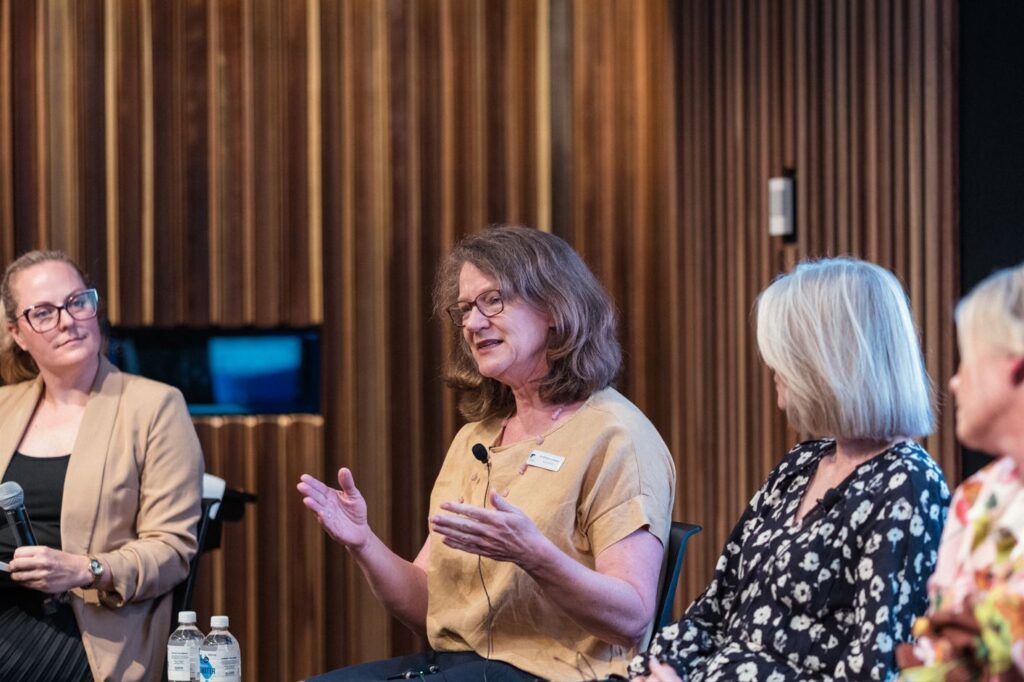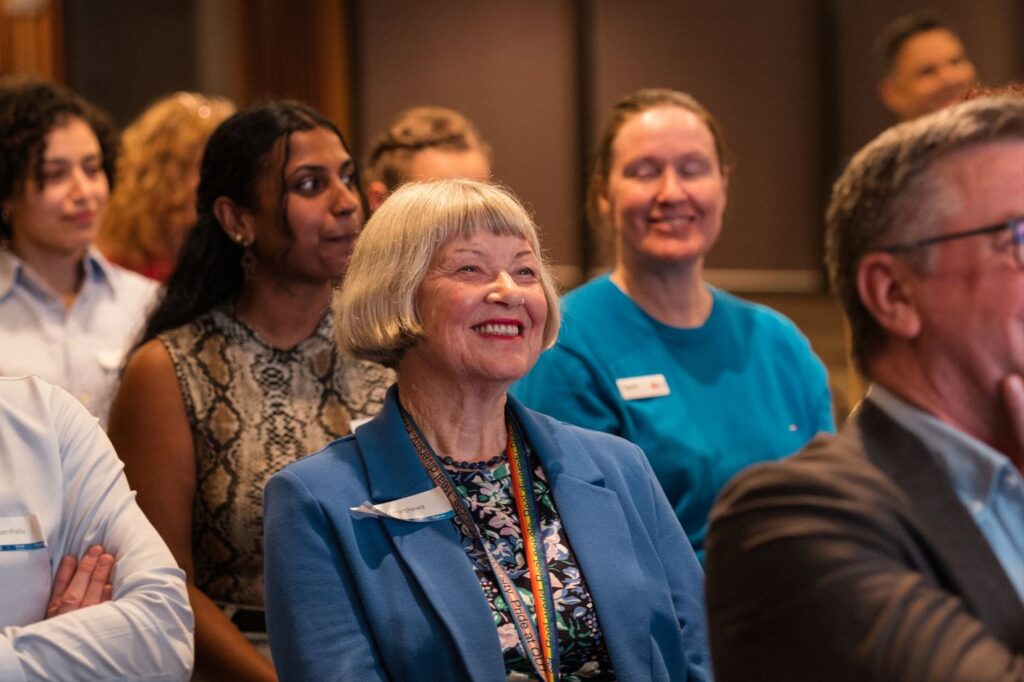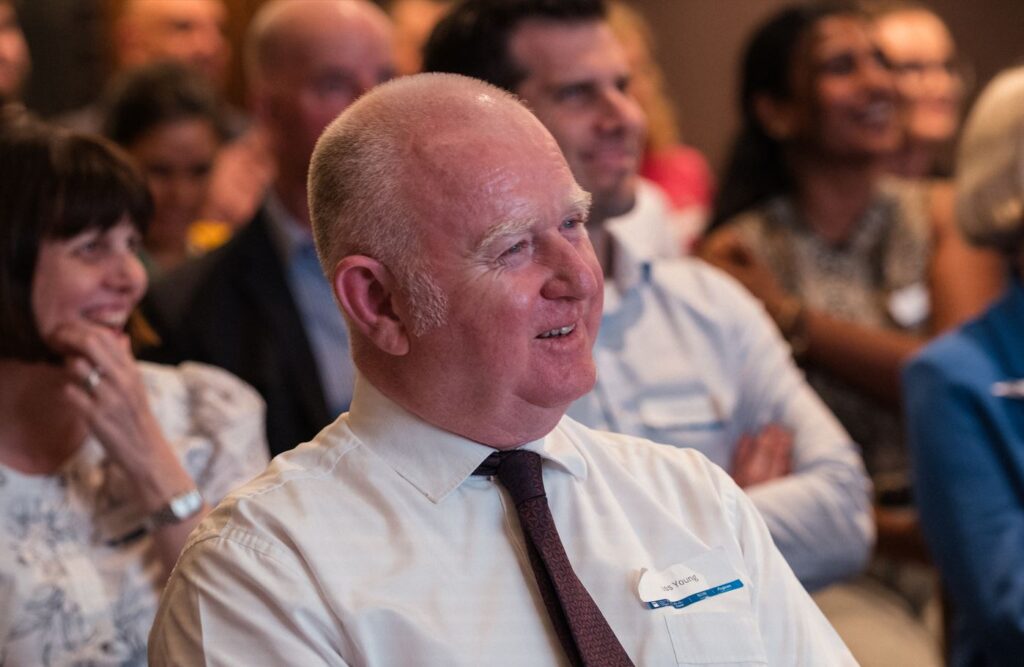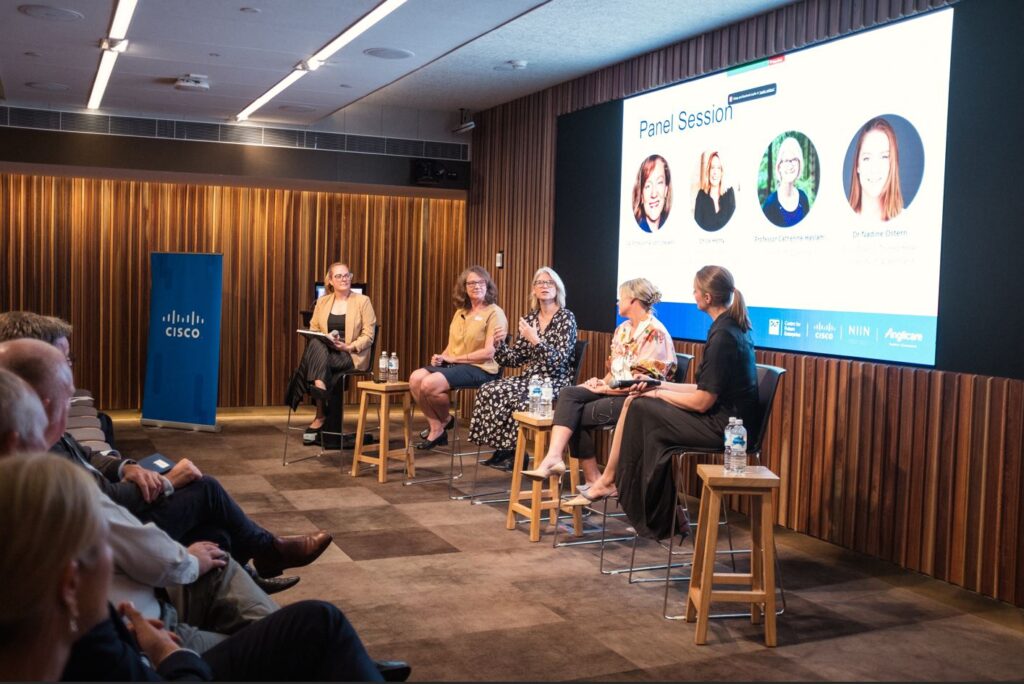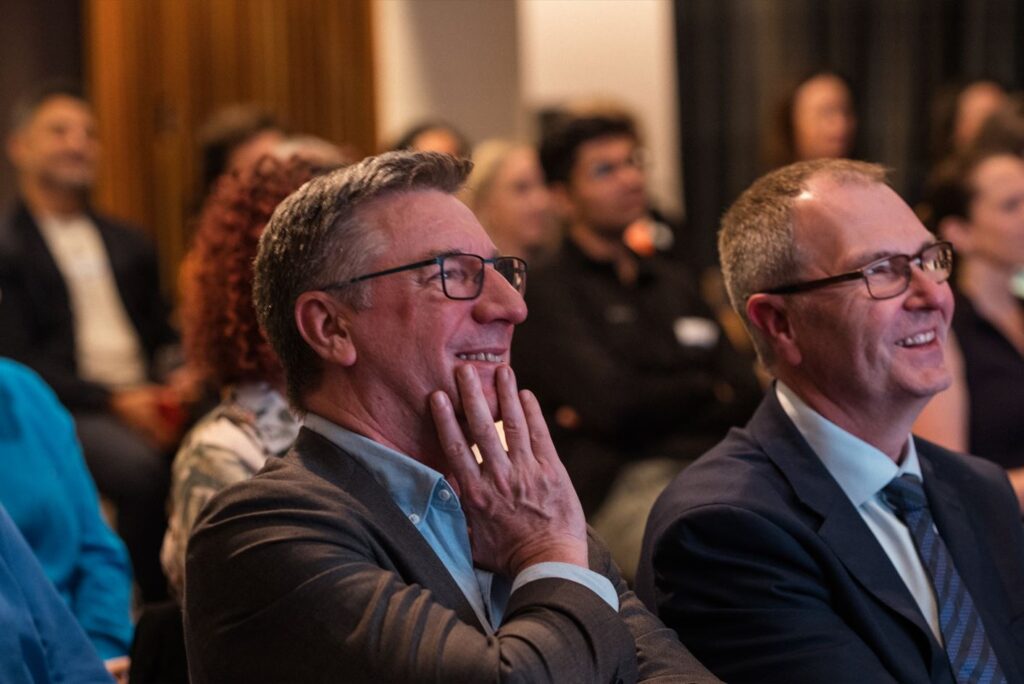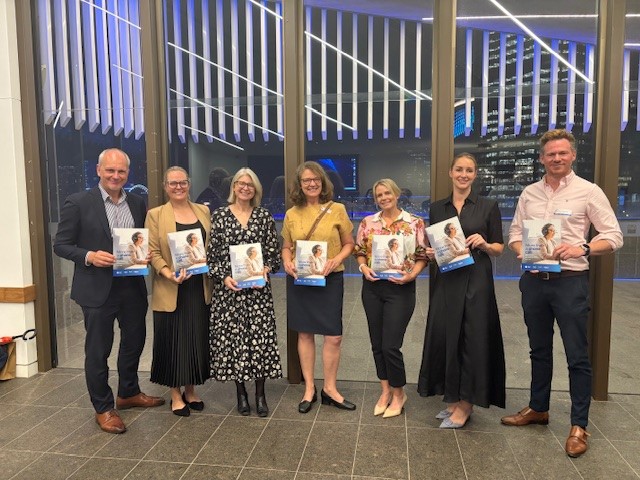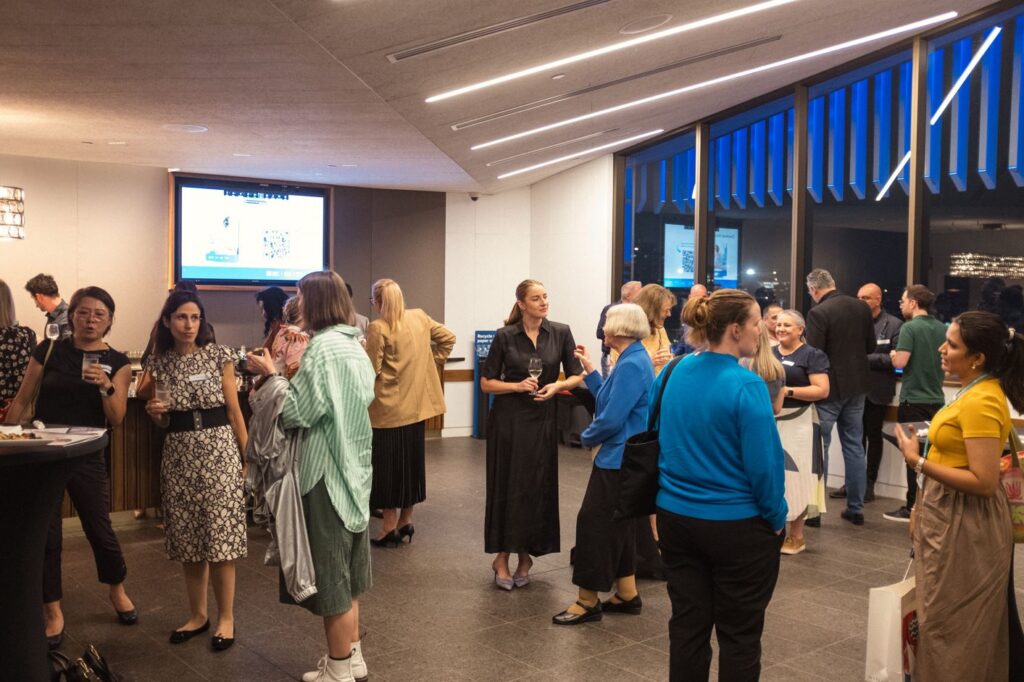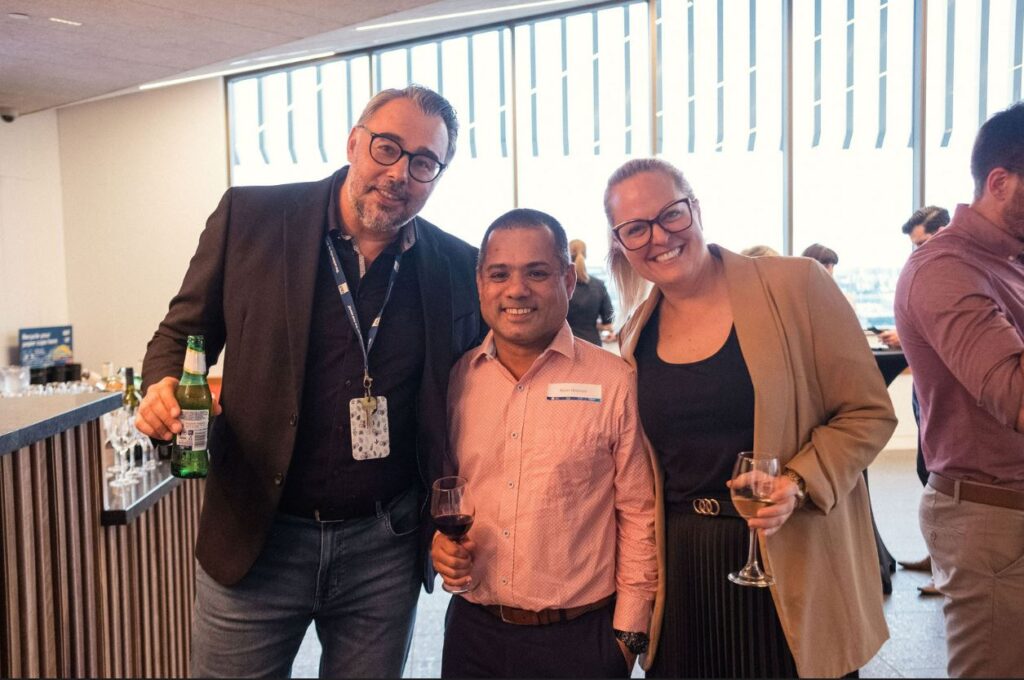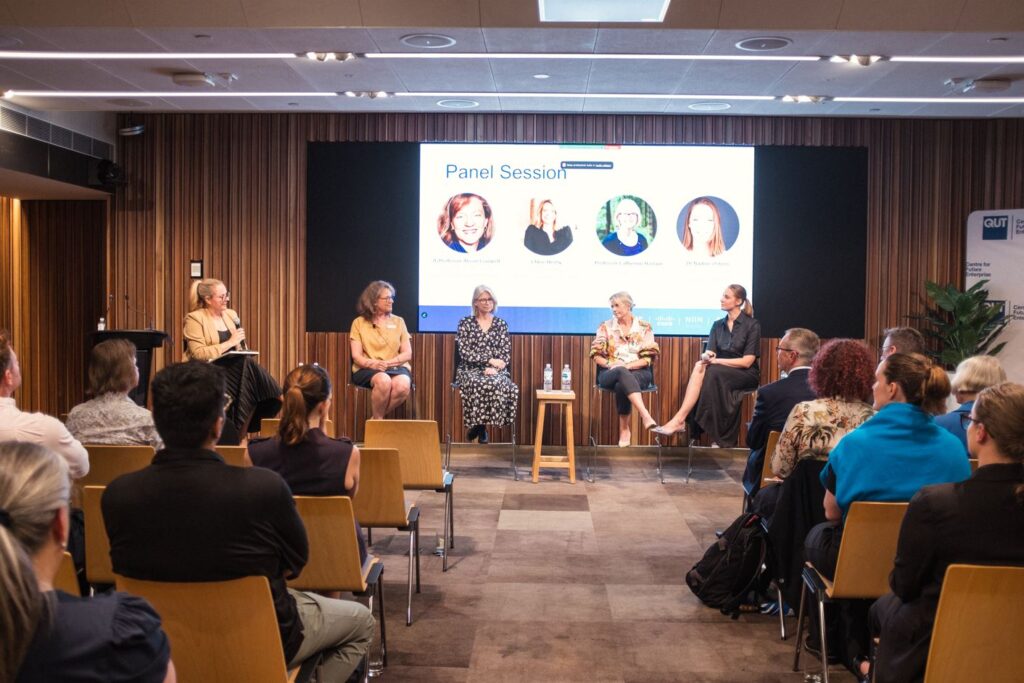
On 28 October 2025, CFE hosted a powerful event that brought together experts from across disciplines to confront one of the most pressing challenges of our time: loneliness.
Launching a vision for relational care
The event marked the launch of the whitepaper More than a phone call: Using everyday interactions to detect and respond to loneliness, developed in partnership with Anglicare Southern Queensland and supported by Cisco.
Emceed by Dr Shannon Colville, the event opened with a keynote by Dr Nadine Ostern, Cisco Chair of Trusted Retail at QUT, who framed the conversation around trust, technology, and the future of relational care. Nadine emphasised that trust is no longer a soft value – it’s a strategic imperative, especially in service sectors where emotional wellbeing is at stake.
Insights from the panel
The panel discussion featured Chloe Henry (Chief Client Officer, Anglicare Southern Queensland), Associate Professor Alison Craswell (University of the Sunshine Coast), Professor Catherine Haslam (University of Queensland), and Dr Nadine Ostern. Together, they explored the emotional, technological, and systemic dimensions of loneliness, particularly among older adults. Professor Haslam highlighted the complexity of loneliness, noting that it’s often invisible and misunderstood. It’s not just about being alone, it’s about feeling disconnected, even in the presence of others. Chloe added that service interactions, such as those in contact centres, can carry subtle emotional cues that, if recognised, could lead to timely and meaningful support.
The panel discussed whether loneliness is likely to become more or less severe in the years ahead. Without intentional change, the outlook is concerning. As digitalisation accelerates and human touchpoints diminish, emotional isolation may deepen. However, the panel also offered hope: through partnerships between clinicians, service providers, technology firms, and researchers, we can design systems that detect and respond to loneliness early and empathetically.
Technology with a human heart
A key theme was the responsible use of technology. Digital tools must strengthen, not replace, human care. In aged care, for example, AI-driven contact centres can help identify loneliness and personalise support, but only if they are co-designed with the people they serve. Safeguards such as ethical frameworks, staff training, and governance models are essential to ensure that technology remains a tool for connection, not isolation.
The most important change needed, the panel agreed, is a shift in mindset. Loneliness should be seen not as a personal failing but as a societal challenge, one that demands empathy, innovation, and collective action.
This event was more than a launch, it was a call to reimagine how we connect. Every interaction holds the potential to make someone feel seen, heard, and valued. In a disconnected world, that’s a powerful place to start.
Thank you to everyone who attended and contributed to this important conversation.
We especially acknowledge the presence of Professor Cameron Newton (Deputy Dean of the Faculty of Business and Law, QUT), Professor Robyn Mayes (Associate Dean of Research in the Faculty of Business and Law, QUT), Professor Peter O’Connor (Head of School of Management, QUT), Professor Michael Rosemann (Director of the Centre for Future Enterprise, QUT), Terry Webber (Cisco Regional Manager – QLD, NT, PNG), Professor Kevin Desouza (Professor of Business, Technology and Strategy in the School of Management), and Professor Ross Young (Deputy Vice Chancellor of Research and Innovation at the University of the Sunshine Coast, and Chair of the Cisco National Industry Innovation Network).
About the whitepaper
In this video, the researchers and authors of ‘More than a phone call: Using everyday interactions to detect and respond to loneliness’, share insights from their findings that challenge conventional thinking and propose a bold, actionable strategy to address one of today’s most pressing public health issues: loneliness. Watch now
Download the whitepaper
More than a phone call: Using everyday interactions to detect and respond to loneliness is freely available for download. Access it now and explore a bold new perspective on loneliness.
Download the whitepaper
Thank you to everyone who came along – enjoy the pics!
Thank you to Marvin Fox for the night’s superb videography and photography.
Proudly presented by

